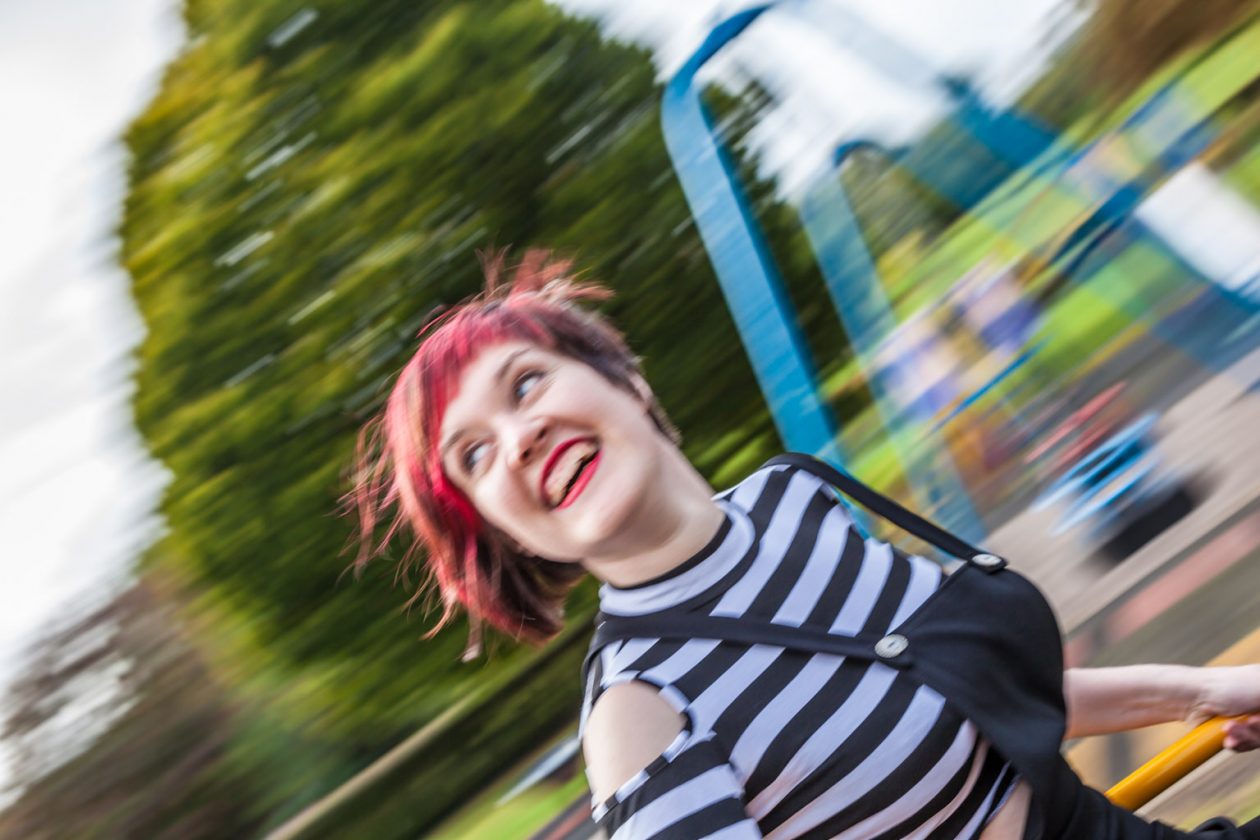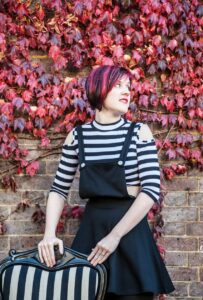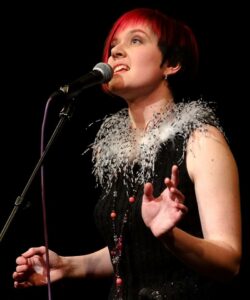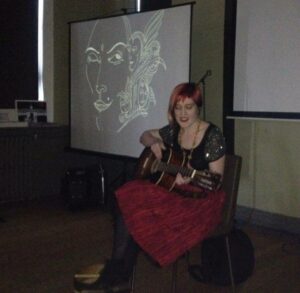
Part 2 MARK STATMAN: MEXICO AND THE POETRY OF GRIEF AND CELEBRATION
Part 2 of my interview with Mark Statman looks closely at Mark’s Latin American poetic influences, his life in Mexico and ends with an extract

“Creativity can turn awful experiences into art, it teaches us to listen more deeply to ourselves and also to ‘tune into’ others” – Daria.
 I first saw Daria Kulesh sing ‘Butterflies’ on Youtube and immediately asked her to appear at Berkhamsted Live, our local mixed-arts show. After hearing her, one of the audience told me that her pure-voiced folk style reminded him of Sandy Denny of Fairport Convention.
I first saw Daria Kulesh sing ‘Butterflies’ on Youtube and immediately asked her to appear at Berkhamsted Live, our local mixed-arts show. After hearing her, one of the audience told me that her pure-voiced folk style reminded him of Sandy Denny of Fairport Convention.
Russian-born Daria is a deep soul who mixes musical traditions, writes her own material and appears solo on her album Eternal Child, as well as with her group Kara in Waters so Deep. I interviewed Daria to find out more about what shapes her very personal, deeply-musical creativity.
Leslie: Tell me about the music you enjoy, now and in the past.
Daria: I enjoy all good, genuine music, I get my creative batteries charged listening to quality music, especially live. Especially songs that tell stories. There are two particular pieces of music that did speak to me in my teens and got me into singing. As if they opened a secret door I didn’t even know existed. The first one is Nino Rota’s ‘What Is a Youth?” from the classic Romeo and Juliet film. I watched it in an English lesson and was dumbstruck and mesmerised by the song.  I had to learn it. So I started singing it to friends and finding my voice. The second piece of music is also my first foray into songwriting. it’s a heavenly, haunting tune – ‘Lonesome Boatman’ by Finbar Furey. I put some lyrics to it which reflected my crush on the Scottish tin whistle player who performed it at a concert in Moscow. It’s all about seduction by a kelpie, about surrendering to the enchantment. It’s how I felt, enthralled by the tune, lost in a moment, drowning, melting into music until we are one.
I had to learn it. So I started singing it to friends and finding my voice. The second piece of music is also my first foray into songwriting. it’s a heavenly, haunting tune – ‘Lonesome Boatman’ by Finbar Furey. I put some lyrics to it which reflected my crush on the Scottish tin whistle player who performed it at a concert in Moscow. It’s all about seduction by a kelpie, about surrendering to the enchantment. It’s how I felt, enthralled by the tune, lost in a moment, drowning, melting into music until we are one.
Leslie: How do compositional ideas come to you?
Daria: First, there’s a sensation of a song that wants to be born. I keep a list of stories I want to write about, but there has to be that first hook, either melodic or lyrical, to set things into motion. Then the song can take minutes or months to form. Sometimes I change existing songs, whenever I feel that the story could develop more or be told more effectively, or that it needs something added melodically, a moment of ‘passion and power’ as I like to put it. I try to avoid writing ‘flat’ songs that don’t go anywhere.
Leslie: If you’re using someone else’s music, or something traditional, how do you try to make it your own?
Daria: I seem to have, instinctively, a certain way with accents and intonation that does the trick without me doing much at all. I can also sometimes ‘tone down’ a song that’s usually played as fast and busy but could do with a bit more expression and sparseness. I never copy anybody else’s version of a song. I’d only choose a song if it speaks to me, and then I can live it, not just sing it.
Leslie: Do you work on one piece or on several at a time? How do build on a piece to create others?
Daria: Usually several, especially when I’m full of ideas and stories to tell. For my new project (solo album No. 2), I actually have a spreadsheet of stories and even potential names of songs yet unwritten. Whenever I come across a story that’s songworthy and also speaks to me personally, I take note.
Leslie: What happens when you rework a composition? Do you throw away some of what you do, or keep it to ‘recycle’ later?
Daria: I ruthlessly throw everything away with no intention of ‘recycling’, but sometimes bits of lyrics, tunes and hooks do come back. The problem is I never forget anything I write.
Leslie: What musical instruments do you choose to work with?
Daria: My main instrument for songwriting is the guitar which is very versatile. But for some songs, I go for the otherworldly drone of the shruti box or the simple beat of the bodhran. The latter songs are usually described by the audiences as having a ‘medieval’ sound, so I use them for songs on mythical or historical subjects. My more contemporary songs have guitar accompaniment or piano backing on the recordings. Sadly, I don’t play the piano, I wish I could. Most of my songs, bar one, were originally written on guitar.
Leslie: What are the deeper concerns to be found behind your music?
 Daria: I feel I’m a bit different and have an affinity with others who don’t quite fit in. A lot of people interpret the world on a very surface level and can be easily manipulated, they don’t feel the need to ‘dig deeper’. They know exactly how they, and people around them, must live their lives. The problem with this perfectly set-up and mapped-out world is that it’s so easy to destroy, there’s no flexibility or depth in it, especially when happiness hinges on materialistic possessions and external appearances. Creativity can turn awful experiences into art, it teaches us to listen more deeply to ourselves and also to ‘tune into’ others. Too many people are completely devoid of empathy and awareness. Hopefully this can change, hopefully more and more people realise that creating is so much more fulfilling than consuming.
Daria: I feel I’m a bit different and have an affinity with others who don’t quite fit in. A lot of people interpret the world on a very surface level and can be easily manipulated, they don’t feel the need to ‘dig deeper’. They know exactly how they, and people around them, must live their lives. The problem with this perfectly set-up and mapped-out world is that it’s so easy to destroy, there’s no flexibility or depth in it, especially when happiness hinges on materialistic possessions and external appearances. Creativity can turn awful experiences into art, it teaches us to listen more deeply to ourselves and also to ‘tune into’ others. Too many people are completely devoid of empathy and awareness. Hopefully this can change, hopefully more and more people realise that creating is so much more fulfilling than consuming.
Leslie: What important phases has your music been through, and why?
Daria: There were a few phases before I found my voice. Initially my singing was very classical, it’s a Russian thing. Now my singing is much more soft and subtle, with far more nuances and shades of emotion. But I kept the crystal-clear diction which people notice and like. They enjoy hearing and understanding every word in my songs. The biggest step forward for me was learning the guitar, I hadn’t written music, only lyrics, before I picked up an instrument. Yet the moment I was able to strum just a few basic chords, the tunes came flooding. Also it was an interesting transition from writing poetry in Russian to writing poetic songs in English.
Leslie: How does a sense of a particular place or person(s) appear in your music?
Daria: I come from a different place that’s even seen by some people on this island as ‘exotic’. They hear this ‘sense of a different place’ in my music without me really doing anything. I see the world through symbols, it’s a bit of a code for people and places. The problem with this ‘code’ is that it can be quite personal. Two people would walk the same road, new to them, and notice different things that they’d recognise later if walking the same road again. What I also do, when telling another person’s story in a song, is imagine the world through their eyes. And also try and figure out what they’d think and feel if they saw the world through mine.
Leslie: Which musical pieces of yours do you think of as the most important, most seminal, and why?
Daria: ‘Fata Morgana’ was a song that re-connected me with my late grandmother and her stories, her mystery. My entire second album is based on the amazing stories of her family that she used to tell me. I feel it’s too early on my songwriting journey to talk about ‘seminal’ pieces, but ‘In Lille’ was the first storytelling song I wrote and ‘Butterflies‘ also is a piece that means a lot to me and the first one I wrote in DADGAD…
To me, Daria’s creativity comes from her love of stories, her particular blend of strong intellect and deep passion, and the trance-like quality of live performances where she enters a state akin to self-hypnosis. I notice how she develops her ‘confessional’ experience as material ‘out there’ to be examined like a rock or flower. I also sense a relationship between her cross-cultural ‘intermediate’ identity and her ghostly, mirror-like creativity. She’s an outsider who sees things from above, or from the other side. When I mentioned the Jungean archytpe of Puer/Puella Eternis she felt it connected with her musical and artistic self.
The song which originally drew me to her work, ‘Butterflies’, has been released as a charity single for DEBRA, the national charity that supports people living with Epidermolysis Bullosa (EB), a rare condition that makes skin as fragile as a butterfly’s wing. It’s available on iTunes, Amazon, Spotify, etc.
ABOUT LESLIE TATE’S BOOKS:

Part 2 of my interview with Mark Statman looks closely at Mark’s Latin American poetic influences, his life in Mexico and ends with an extract

I interviewed international poet and translator Mark Statman about Volverse/Volver, his 14th published collection. Mark, who has won national arts awards, is Emeritus Professor of Literary

I interviewed Lisa Dart, finalist in the Grolier, Aesthetica and Troubadour Poetry Prizes and author of The Linguistics of Light (poems, Salt, 2008), Fathom (prose

I interviewed writer Julia Lee Barclay-Morton about her experience of autism. Julia began as an experimental dramatist in New York, moving to the UK to

I interviewed Gillean McDougall from Glasgow, who edited the collaborative projects Honest Error (on Charles Rennie Mackintosh and his wife Margaret Macdonald) and Writing the
| Cookie | Duration | Description |
|---|---|---|
| cookielawinfo-checkbox-analytics | 11 months | This cookie is set by GDPR Cookie Consent plugin. The cookie is used to store the user consent for the cookies in the category "Analytics". |
| cookielawinfo-checkbox-functional | 11 months | The cookie is set by GDPR cookie consent to record the user consent for the cookies in the category "Functional". |
| cookielawinfo-checkbox-necessary | 11 months | This cookie is set by GDPR Cookie Consent plugin. The cookies is used to store the user consent for the cookies in the category "Necessary". |
| cookielawinfo-checkbox-others | 11 months | This cookie is set by GDPR Cookie Consent plugin. The cookie is used to store the user consent for the cookies in the category "Other. |
| cookielawinfo-checkbox-performance | 11 months | This cookie is set by GDPR Cookie Consent plugin. The cookie is used to store the user consent for the cookies in the category "Performance". |
| viewed_cookie_policy | 11 months | The cookie is set by the GDPR Cookie Consent plugin and is used to store whether or not user has consented to the use of cookies. It does not store any personal data. |